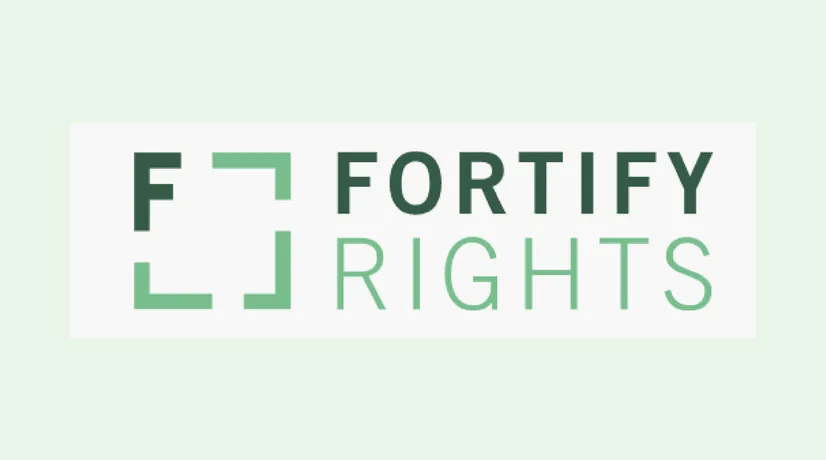Myanmar/Bangladesh: End Internet Blackouts in Rakhine State, Rohingya Refugee Camps
13 September 2019

Bangladesh suspends internet access for refugees, internet restrictions continue in parts of Myanmar
(Yangon, September 13, 2019)— The governments of Myanmar and Bangladesh should immediately lift targeted restrictions on mobile internet communications, said Fortify Rights today. In the first week of September, Bangladesh authorities ordered telecommunications operators to cut internet coverage in Rohingya refugee camps in Cox’s Bazar District and prevent Rohingya refugees from obtaining SIM cards. In some camps, Bangladesh authorities reportedly confiscated refugees’ mobile phones since the orders were publicized.
Meanwhile, the Myanmar Government restored internet services in five townships of Rakhine State on September 1, although coverage remains suspended in four townships of the state, affecting areas where hundreds of thousands of civilians reside.
“Aside from being a fundamental right, access to mobile phones and the internet make the refugee camps in Bangladesh more stable and secure, not less,” said Matthew Smith, Chief Executive Officer of Fortify Rights. “Cutting off communications in the camps will further isolate the Rohingya, frustrate the delivery of lifesaving aid, and increase the risk of further violations, including human trafficking.”
During the first week of September, the Bangladesh Telecommunication Regulatory Commission (BTRC) reportedly called on telecommunications operators to cut mobile internet coverage in the refugee camps in Cox’s Bazar District between 5 p.m. and 6 a.m. and prevent the use and sale of mobile phone SIM cards by Rohingya refugees. Senior Assistant Director of BTRC Mohamed Zakir Hossain Khan told reporters that BTRC issued the order based on “security grounds,” giving telecommunications operators in Bangladesh seven days to implement the order.
Fortify Rights received reports from refugees that Bangladesh authorities confiscated refugees’ mobile phones since September 1, although the effort at the time of writing does not appear to be systematic.
In June 2019, the Government of Myanmar similarly shut down internet services in nine townships—eight in Rakhine State and one in Chin State—impeding humanitarian aid, business, media access, and human rights monitoring. On September 1, the government restored the internet in five townships—Maungdaw, Buthidaung, Rathedaung, Myebon, and Paletwa—but continued to suspend services in Ponnagyun, Kyauktaw, Mrauk-U, and Minbya townships.
In justifying the shutdown, Telenor Group said the Ministry of Transport and Communications cited “disturbances of peace and use of internet services to coordinate illegal activities.” A vague provision of Myanmar’s 2013 Telecommunications Law permits the suspension of internet services “when an emergency situation arises” and “for public interest.”
In July 2019, Fortify Rights documented how the internet shutdown in Rakhine State disproportionately affected the protection of civilians through the disruption of aid delivery.
That same month, U.N. Special Rapporteur Yanghee Lee told the U.N. Human Rights Council that human rights violations that may amount to war crimes are continuing in Rakhine State, where the Myanmar Army and Arakan Army are engaged in armed conflict that has displaced thousands of ethnic Rakhine—or Arakanese—civilians. “Indiscriminate attacks in and around villages as well as targeting of civilians and civilian objects, including monasteries hosting IDPs [internally displaced persons], has left scores of civilians wounded and dead,” Yanghee Lee said.
Internet restrictions in Rakhine State and Cox’s Bazar District will negatively impact humanitarian operations as well as emergency preparedness and response activities and could serve to cover-up ongoing human rights violations, said Fortify Rights.
“A blackout on internet access for civilians creates an enabling environment for human rights violations,” said Matthew Smith. “Instead of limiting communication, the Myanmar and Bangladesh authorities should be facilitating access for humanitarian aid workers, journalists, and human rights monitors to civilians in need.”
The carriers reportedly affected by the Bangladesh government-imposed internet shutdown include, at least: Grameenphone, which is largely owned by Norwegian telecoms group Telenor; Robi Axiata; Telecom Ventures’ Banglalink; and state-owned Teletalk.
Article 19 of the Universal Declaration of Human Rights protects the right to freedom of expression, which includes the right to “receive and impart information and ideas through any media and regardless of frontiers.” Recognizing the internet as a “key means” for individuals to exercise this right, the U.N. Special Rapporteur on the right to freedom of opinion and expression held that States have a positive obligation to adopt “effective and concrete policies and strategies . . . to make the Internet widely available, accessible and affordable to all.”
International law permits States to limit access to the internet for reasons of national security, but any such restriction must be provided by law, necessary to achieve a legitimate aim, and not be overbroad or disproportionate. In a 2016 resolution on the promotion, protection, and enjoyment of human rights on the internet, the Human Rights Council stated that it “[c]ondemns unequivocally measures to intentionally prevent or disrupt access to or dissemination of information online . . . and calls on all States to refrain from and cease such measures.”
View the original here.
၎
င
၎
၎
၎
င
၎
၎
Announcements
28 February 2025
Asian NGO Network on National Human Rights Institutions , CSO Working Group on Independent National Human Rights Institution (Burma/Myanmar)
Open letter: Removal of the membership of the dis-accredited Myanmar National Human Rights Commission from the Southeast Asia National Human Rights Institution Forum

Progressive Voice is a participatory rights-based policy research and advocacy organization rooted in civil society, that maintains strong networks and relationships with grassroots organizations and community-based organizations throughout Myanmar. It acts as a bridge to the international community and international policymakers by amplifying voices from the ground, and advocating for a rights-based policy narrative.